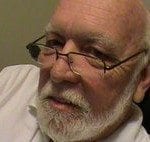BY RICHARD L. FRICKER
 It is a remarkable testament to a piece of literature when it can successfully weather three different mediums. And so it is with Sister Helen Prejean’s Dead Man Walking.
It is a remarkable testament to a piece of literature when it can successfully weather three different mediums. And so it is with Sister Helen Prejean’s Dead Man Walking.
The Tulsa Opera will present the Jake Heggie and Terrance McNally work at the Performing Arts Center beginning Feb. 25.
Since its 2000 opening in San Francisco the opera has become an American classic, according to Kostis Protopapas the opera’s Artistic Director. “Theater should have something to say,” he said over lunch at the Tulsa Press Club.
This particular opera goes to the heart of an American institution now rejected by the rest of the western world: capital punishment. He, like book author, Sr. Helen, refers to it as a journey.
There is a crime; there is no doubt who is guilty. There are victims, not just those who are slain, but parents of both victims and perpetrator. The journey is that of Sr. Helen. But the audience is strapped in the backseat.
“The audience,” Protopapas says, “becomes a community. There are no buffers.”
The Athenian born director knows audiences having worked as assistant director or chorus master to the Los Angeles Opera, Lyric Opera of Chicago as well as Santa Fe, St. Louis and Memphis, to name a few.
The audience comes to know each of the players, often times in very uncomfortable ways. While the crime is clear and the criminal is far from remorseful, it is justice that becomes vague.
The families of the central players explore their pain, not always from what did happen, but rather for the inevitability of what is going to happen. As the audience journeys with Sr. Helen to the fatal end they are called upon to make their own judgments.
“You are made responsible,” the director says, “You cannot escape being drawn into the middle of this piece.”
Protopapas said the actors have found rehearsals difficult at times because the roles require such a high level of intensity. “Getting in and out of the roles in this particular piece has at times caused a lot of stress.”
“All good opera must relate to life,” Protopapas said. He notes that historically this opera is the closest most of the audiences have come to the real life drama of capital punishment.
Because it is opera, he says, “the music tells more than the words.” Sr. Helen has remarked that the power of music draws the audience in as each character moves toward the time of execution.
The work also uses silence as an expression. Protopapas pointed out that one of the signature moments of the opera is the silence of the audience at the conclusion. Reviewers have noted this silence often lasts for several minutes.
Protopapas is careful to point out that the Tulsa Opera production of Dead Man Walking is not stylized from the original San Francisco work. He says the opera is a journey that speaks for itself.
Sr. Helen says, “We have to help people make the journey.”
NOTE: In conjunction with the opening of Dead Man Walking, Sr. Helen Prejean will discuss capital punishment at 6 p.m. Tuesday at the University of Tulsa’s Lorton Performing Arts Center. In addition, the Living Arts Studio, 307 E. Brady, is presenting Eye-4-Eye, a juried exhibition of 20 regional artists and their perception of capital punishment. The exhibit is free and runs through Friday. Also on Friday, Jake Heggie will be interviewed by Kostis Protopapas at the Tulsa Community College as part of Inside Composer’s Studio.
– Richard L. Fricker lives in Tulsa, OK and is a regular contributor to The Oklahoma Observer. His latest book, Martian Llama Racing Explained, is available at http://www.richardfricker.com.









A wonderful article, highly interesting! I wish i could see the opera in Tulsa!
Really good article… thought provoking to say the least….